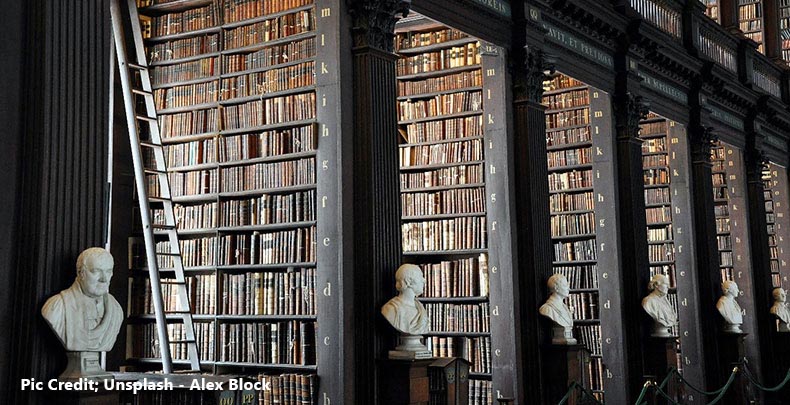
Let’s begin at the beginning!
To understand the role of the Liberal Arts teacher in an age otherwise arraigned illiberal, we must go down the lanes of classic Greek philosophy. During the second half of the fifth century B.C., in Greece, we saw the rise of a group of tutors for the aristocrats and nobilities, the Sophists. The Sophists were itinerant teachers (read private tutors) who got students enrolled indiscriminately for money and pelf. In Athens and other κάλλος (and please don’t read the beauty in it other than its nonreflexive understanding of architecture, for sublime is yet to be), the word Sophists owes its origin to σοφός (sophos, a wise man). Instead of being conditioned through wisdom, the Sophists shrank to the level of being nothing more than an instructor or σοφίζω (sophizo). They speciously and deceptively instructed the rich youths to package lies sophisticatedly in public discourses. Such speeches, filled with rhetorics and were bereft of “Truth” and were meant as persuasive speeches to crowd-pull and gain favor. More as teachers who taught pragmatic management skills and shrewd administration style to control the city-states, the Sophists with their ultra-pragmatic cymini sectore analytical views dismissed the celestial associations of human subjects. They criticized God, spirituality, heaven, and even philosophia (philo=love; Sophia=wisdom) or love for wisdom, a wisdom that owed its origin to tradition and religiosity. If this attitude of the Sophists whetted the liberal democracy in Greece and paved the way for secular atheists, then in its extreme form, it espoused the “means justified the end” method of inhumane modus operandi. Hence, the Sophist teacher and his worldview were far from liberal.
It is here where Socrates and his philosophy as a necessity demanded intervention.
The Socratic teaching must be contradistinguished from those of Sophists and rested on the motive of finding “Truth.” Such a method, as propounded by Socrates, that was logical, founded on the dialectics of refutation of ψεῦδος (pseûdos) or false belief, infused in philosophia, had its appeal to the young avant-garde students of Athens. Such students had an iconoclastic conviction against the extreme rationalism of the then Athenian administration. Socratic teaching method infused the students with a passion for alethe or truth. Alethe was equated with agathos or good and kalon or beauty. The Satyam, the Shivam, the Sundaram! This search for “Truth,” as later Plato, his disciple, in his Republic that scripted the discourses of Socrates would assert, always elides and is yet not to be given up. For “Truth” is an “Idea” or ἰδέα, one that in its perfect form is to be found in the mind of the God, placed beyond the sensible world in huperouranios topos (“place beyond heaven”). That we see on earth is but a shadow, an imperfect imitation (mimesis) of the Perfect Form! The “tree” that we sensibly perceive on earth is an incomplete copy of the ideal “Tree,” whose concept exists in heaven. Thus, the idealistic Socratic or Platonic philosophy and a dialogic method of understanding it, much contrary to the Sophist school, in extreme form, is highly spiritual, limiting of human creativity and traditional. Thus, howsoever contrary to the ways of Sophists, the Socratic teacher and his philosophies failed to project a liberal worldview.
Finally, it is about the balance between rationalism and spiritualism, as achieved by Plato’s student Aristotle, that becomes the model for a liberal arts teacher.
If Aristotle taught Alexander as a paid sophist, at the behest of King Phillip II of Macedon, the rationalities of expansionism, militarism, pragmaticism, then he also philosophized a post-Platonic concept of art. Pushing art beyond the realm of good and truth and freeing it of every morality, Aristotle found artistic creation to be re-presentations rather than a simplified, non-imaginative attempt at copying. Hence, beyond the failed Platonic attempt to create a copy of the “True” ideal, art, for Aristotle, was infused with the man-creator’s creative gusto. Endowing equal imaginative agency to the man-creator in creating public policy, ethics, and administration, on one hand, and poetry, music, and fine arts, on the other, Aristotle balances practicality and creativity.
Today, liberal arts teachers’ agenda is about enabling student-subjects with the creative agency. Such creative agency, invoked to complete the project with innate and innovative imagination, is the lifeblood of all available subjects.
Dr. Arindam Das
Associate Professor, Department of Language & Literature
Alliance School of Liberal Arts
